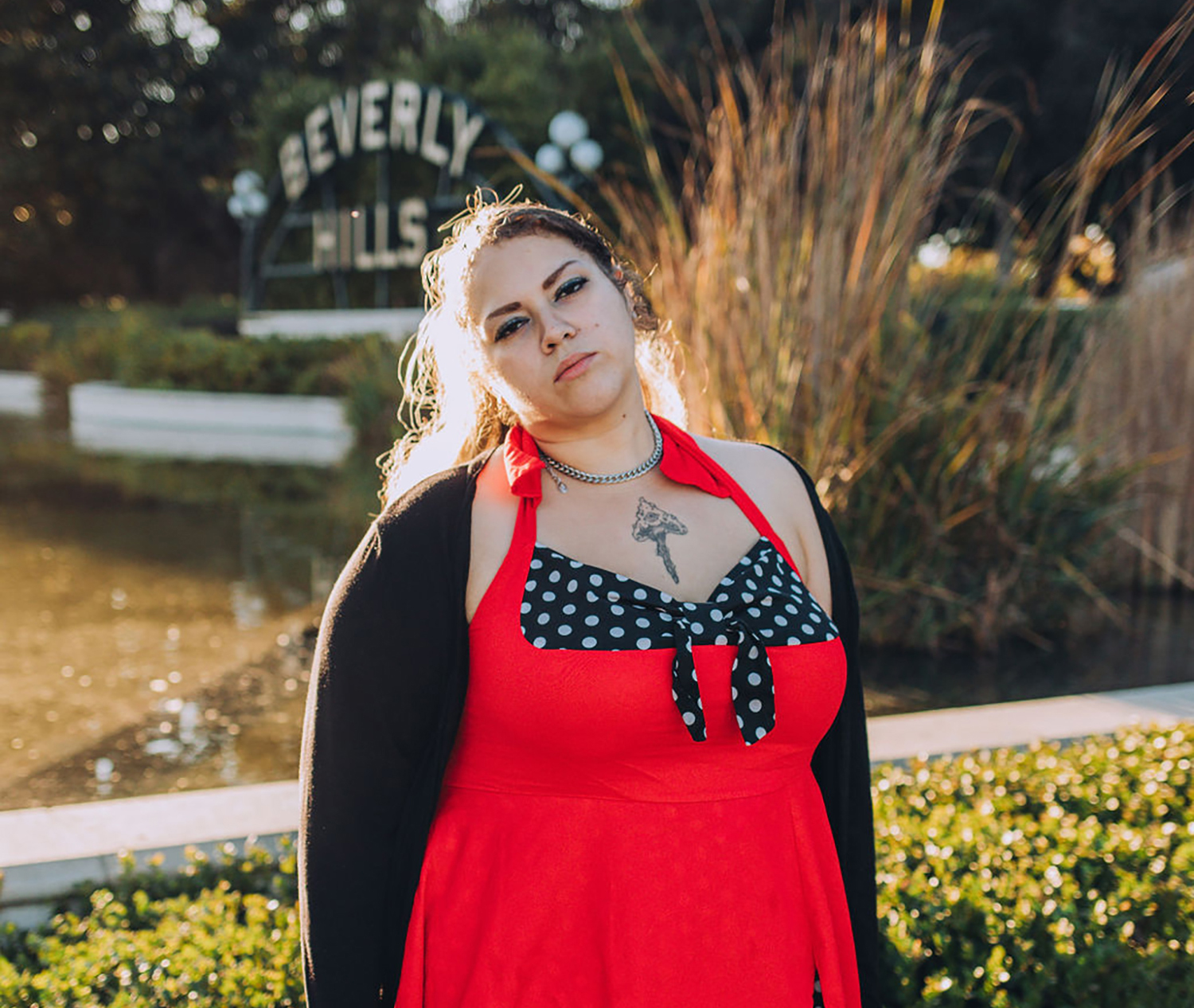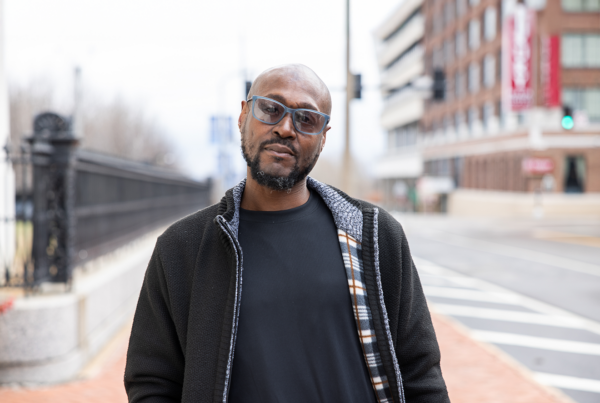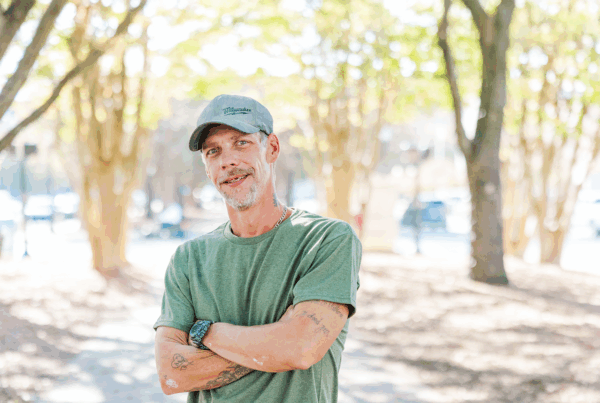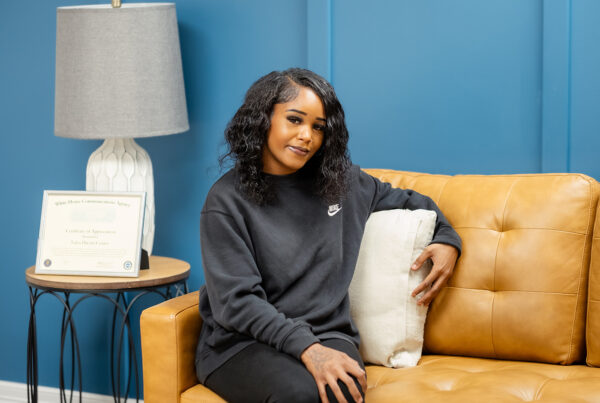Aubriana, a 24-year-old Los Angeles resident, couldn’t afford the $30,000 bond the judge had set as a condition for her release. Although she hadn’t been convicted of a crime and she was still legally presumed innocent, she was taken into custody because she couldn’t afford to pay bail. She spent months in jail awaiting trial, during which time she was evicted from her home and became homeless. That case was ultimately dismissed seven months later, but the simple accusation alone upended Aubriana’s life.
Her situation is not unique. Of the nearly 30,000 individuals served by The Bail Project at least one-third have their cases dismissed. Meanwhile, because of bail, these legally innocent people have their lives disrupted, with huge consequences. According to a 2022 report by the U.S. Commission on Civil Rights, more than 60% of incarcerated individuals could not afford to post bail and were detained before trial. People who are in poverty, like Aubriana, face the brunt of the cash bail crisis. Even a few days in jail, for example, can lead to a loss of job or housing.
“I knew I was innocent because I didn’t do anything wrong, but it’s still scary how in the dark someone can be kept about the fate of their lives.”
But often left out of the conversation are the emotional and psychological impacts that cash bail has on people’s lives. For Aubriana, not only did she have to start her life over from scratch, but the experience left her feeling like she had been found at fault, both before and even after her case was dismissed. “I knew I was innocent because I didn’t do anything wrong,” she recalled thinking. “But it’s still scary how in the dark someone can be kept about the fate of their lives.”
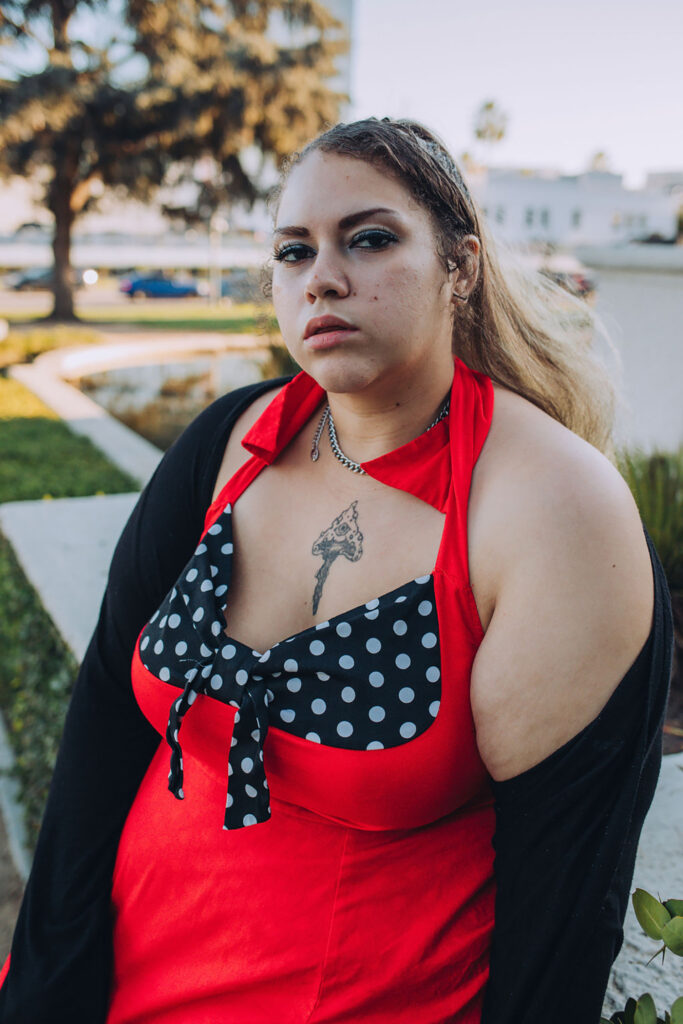
Bail proceedings typically occur at arraignment or at what’s sometimes known as “first appearance.” As its name suggests, this is one of the first and most critical steps in a criminal case. Several outcomes occur at these proceedings. Judges may release people either on their own recognizance – which means a written promise by the defendant that they’ll return without posting any bail money – or bail is set at a certain dollar amount.
Many jurisdictions, such as Los Angeles, also rely on bail schedules, which specify automatic bail amounts for specific criminal charges. Often bail amounts set according to a schedule are very high and unaffordable, with no consideration paid to whether someone can actually afford the amounts set against them – despite the fact that most states have a statutory requirement that bail amounts be affordable when they are set. In California, for instance, the median bail set was $50,000 in 2015. Yet most Americans report being unable to afford even a $1,000 emergency expense.
Despite the importance of bail hearings, these proceedings typically only last a minute or two. This makes it difficult to ensure that judges are effectively and comprehensively assessing an individual’s circumstances. Experts have raised other concerns as well. Research shows that having an attorney present at initial bail hearings is important because it reduces racial and socioeconomic disparities in pretrial incarceration rates and improves case outcomes. That’s because without legal representation, poor defendants, who are predominantly people of color, may be more likely to plead guilty and accept longer sentences. However, not all states require counsel be provided at these initial hearings, meaning that accused people are forced to advocate for themselves within complicated judicial proceedings.
“There are moments now when I get triggered and I don’t realize why until I analyze what’s going on.”
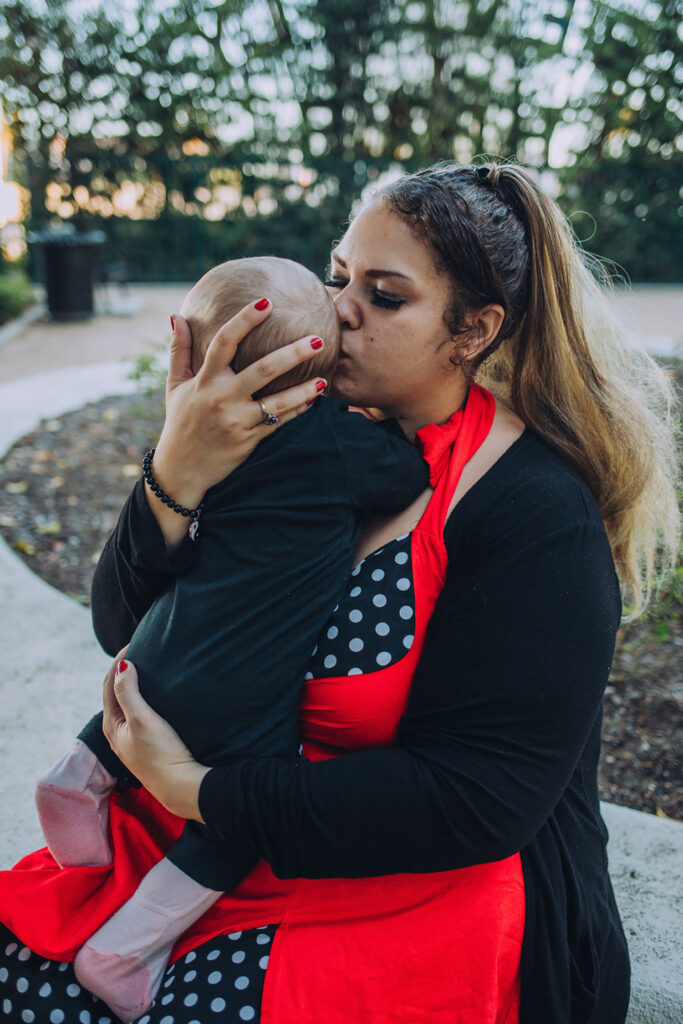
Aubriana is an introspective and social young woman who loves children. She speaks with confidence and is not judgemental, which gives her the rare quality of being able to make even strangers feel like long-time friends. At the same time, Aubriana is deeply analytical and driven to learn about how people’s childhoods shape their adult lives. Her curiosity is rooted in her own childhood and adolescent memories. Aubriana was born and raised in Las Vegas. She lived with her mother, who struggles with methamphetamine addiction, until the age of seven. As a young child, her mother would sometimes leave her alone for days at a time in order to buy and use drugs. Her father, meanwhile, was in prison and not involved in her life. “I would call my aunts and uncles asking for food because I hadn’t eaten for days,” she recalled. When Aubriana’s mother lost custody of her, she was placed into foster care and then raised by her aunt. “Going through trauma with a parent can be detrimental later on as an adult,” Aubriana said. “There are moments now when I get triggered and I don’t realize why until I analyze what’s going on.”
By late 2019, Aubriana was working a stable job in retail, driving a new Toyota, and had found a loving new relationship. She became pregnant and was looking forward to being a first-time mom, but suffered a miscarriage. Overcome with sadness and grief, Aubriana had difficulty concentrating. Her mood sank, affecting her relationships at work and with loved ones at home.
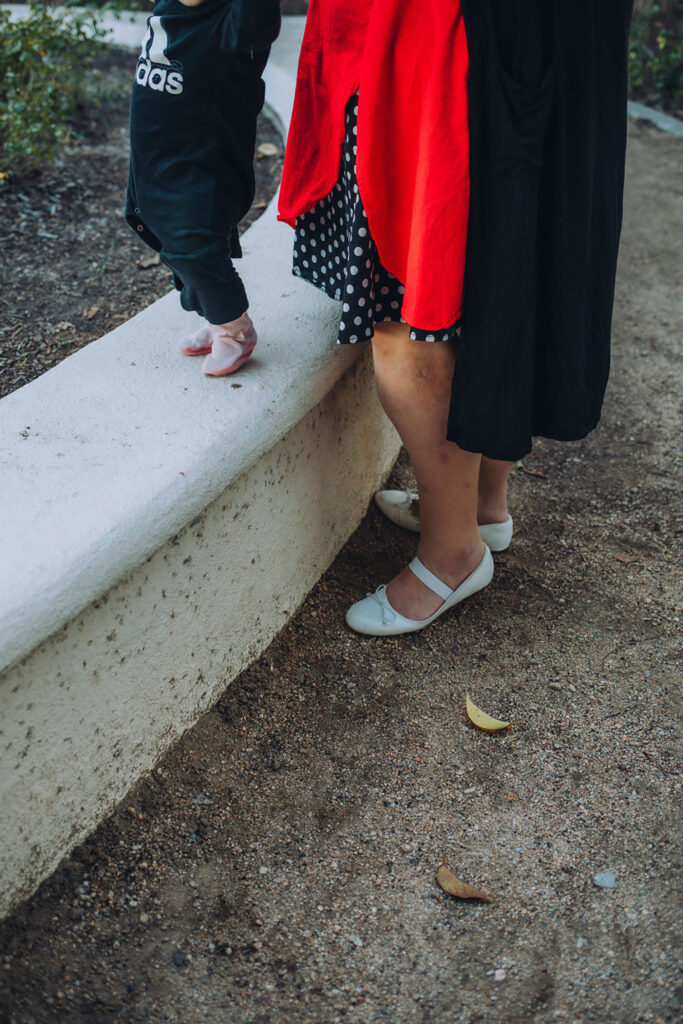
Needing a fresh start, Aubriana moved to Los Angeles in early 2020, figuring she had left her troubles behind. The Covid-19 lockdown was announced shortly after her arrival. With travel and work restrictions imposed nationwide, she was unable to find a job and became homeless. Roughly one year later, she found temporary housing, was paying rent, and working a job as a nanny. But then she was arrested. It took only six weeks for her life to unravel.
Aubriana’s legal troubles began in March 2021, when a group of women confronted her and a friend while they were browsing the tourist shops that run alongside Venice Beach. The women who approached her were acting jealous and possessive, Aubriana said, accusing her of trying to steal away someone’s boyfriend. The accusations turned to threats and then the threats turned to punches. Aubriana didn’t know these accusers, but before she had the chance to get away, one of them hit her. Fearing for her safety, Aubriana defended herself, but was still left badly injured. Her left hand had been broken and she suffered a blow to the head. She considered calling the police but ultimately decided not to, going home instead to recover.
The night after the fight at Venice Beach, Aubriana got a knock on her door from the police. They were there to charge her with assault. The woman who incited the fight was accusing Aubriana of starting it. Aubriana defended herself, explaining to the police the circumstances and that she feared for her safety. “It was in self-defense,” she told them. Still, they booked her into jail.
After spending a few days in custody, and still covered in bruises from the fight, Aubriana had a bail hearing. In Los Angeles, defendants are allowed to pay what’s known as a “percentage bond,” where they’re required to pay only 10% of the total amount to be released; if they don’t appear in the future, they are liable for the remaining 90%. Aubriana watched as defendants before her were released without any requirement at all to pay bail. When it was her turn, Aubriana felt immediately misunderstood. At one point the judge suggested she should do a psychological evaluation. “He thought I was talking to myself, but I wasn’t,” Aubriana recalled. “I was just muttering to myself that I couldn’t believe this was happening to me. He tuned me out like I didn’t matter.” The judge set bail at 10% of $30,000, or $3,000, which was more than she could afford.
“I slept on the sidewalk and in tents for a few months. I was so anxious.”
Aubriana was taken back into custody where she spent the next six weeks in jail. It was during this period that her landlord evicted her, effectively rendering her homeless. One day in mid-April, a correctional officer approached Aubriana and told her she was going to be released. Her public defender had referred her to The Bail Project and our Los Angeles team paid her bail. Aubriana was relieved to be released, but because she was homeless as a result of the incarceration, she had nowhere to go. Homelessness, incarceration, and victimization are deeply intertwined issues among women. A study of formerly incarcerated homeless women published in the National Institutes of Health found that among the women surveyed, over half (53%) met the criteria for post-traumatic stress disorder. A similar study found a year prior to incarceration, over half (53%) of women reported being threatened with serious violence. “I slept on the sidewalk and in tents for a few months,” Aubriana said. “I was so anxious.” On days when she felt most overwhelmed, she hopped on a bus and made her way to Beverly Hills. There, she would bask in the sun and sit on the freshly mowed lawn at the Beverly Garden Park. Although her reality was starkly different from the wealthy individuals who lived nearby, the glittery upscale city, renowned as one of the richest neighborhoods in the county, became her sanctuary.
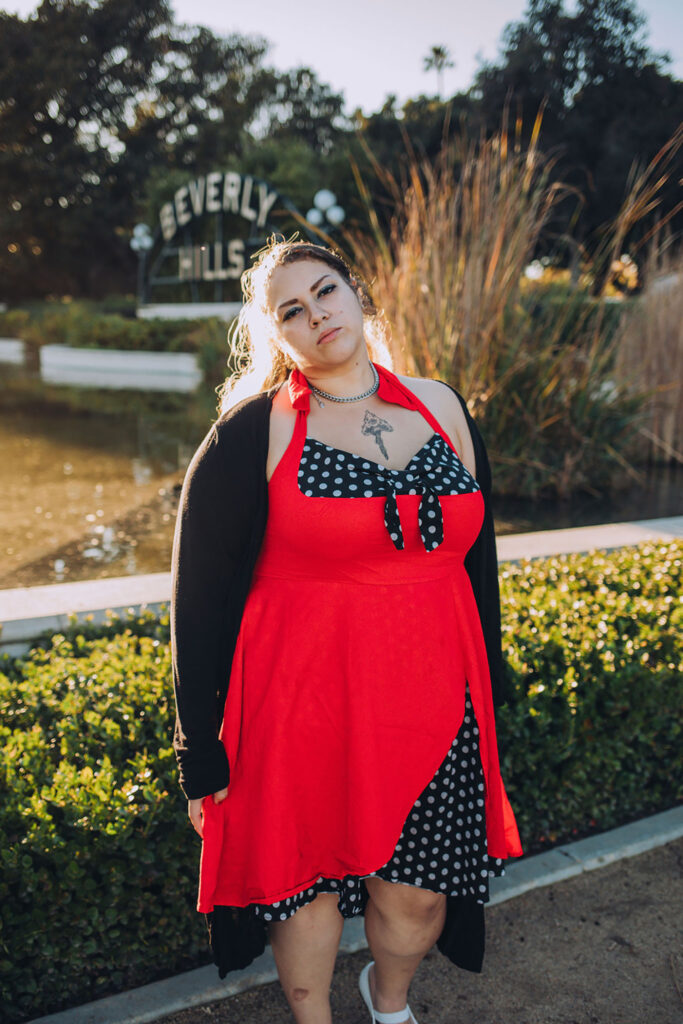
In September, nearly six months after she was released on bail, Aubriana’s case finally went to trial. When the person who had accused her of starting the fight took the stand to testify, it became apparent Aubriana was telling the truth about acting in self-defense. The judge dismissed her case. By this point, Aubriana had spent nearly two months in jail; she had been evicted and experienced homelessness. She was exposed to traumatic conditions inside of Los Angeles County’s jails. She missed out on meaningful opportunities to pursue pro-social activities like employment and education. She would have been in jail even longer had The Bail Project not paid her bail.
Aubriana’s release before disposition afforded her an opportunity to prepare a more effective legal defense. She took her case to trial, an outcome that is statically rare – roughly 3% of all cases in the United States end in trial. That’s because, each day, countless people accept guilty pleas before trial, even when they are innocent, just to escape the traumatizing conditions of our nation’s jails. For some, like Aubriana, pretrial release can be the difference between a dismissal and a conviction.
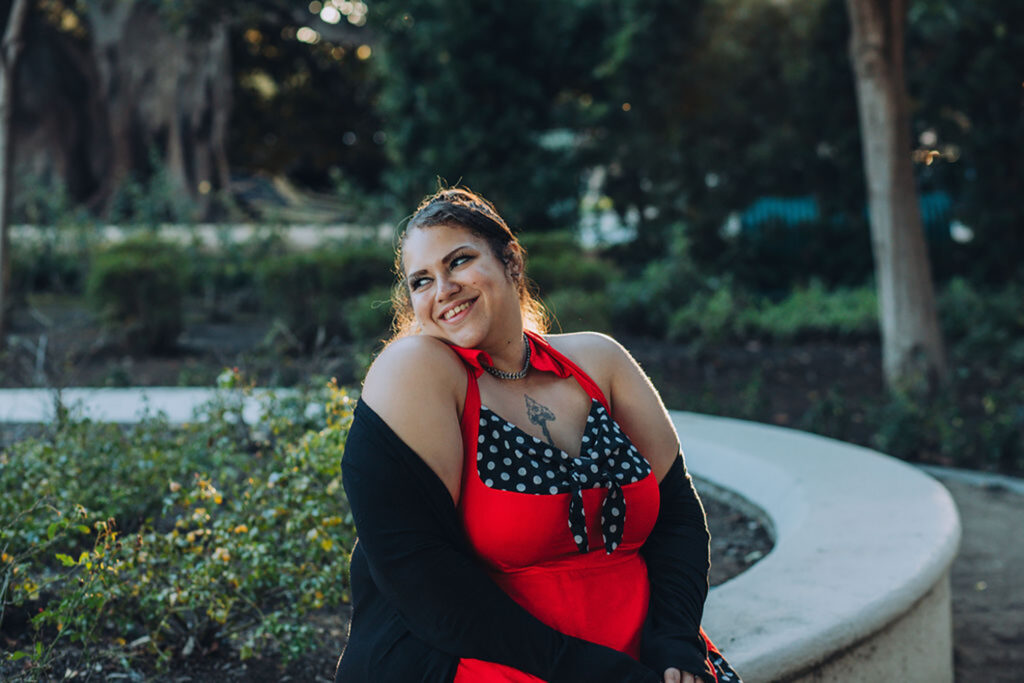
While out of jail, Aubriana was also able to search for stable employment and permanent housing. By the time her trial was over, Aubriana found new temporary housing.
“My end game is to work with children, especially kids who have gone through the same things as me.”
Now, more than one year later, Aubriana has completely turned her life around. She has a permanent apartment in Los Angeles, is enrolled full-time in college, and recently became a mother to a healthy baby girl. When she wakes up each morning and gets ready in her own apartment, she is instantly reminded of her blessings. And with her healthy eight-month-old baby girl by her side, she doesn’t need to look far to remember what keeps her going. Aubriana said she’s studying applied behavioral analysis and psychology in college because she hopes to become either a behavioral technician or counselor that works with children who have developmental and behavioral issues. “Both are important professions to me,” she said. “My end game is to work with children, especially kids who have gone through the same things as me.”
Thank you for reading. The Bail Project is a 501(c)(3) nonprofit organization that is only able to provide direct services and sustain systems change work through donations from people like you. If you found value in this article, please consider supporting our work today.







